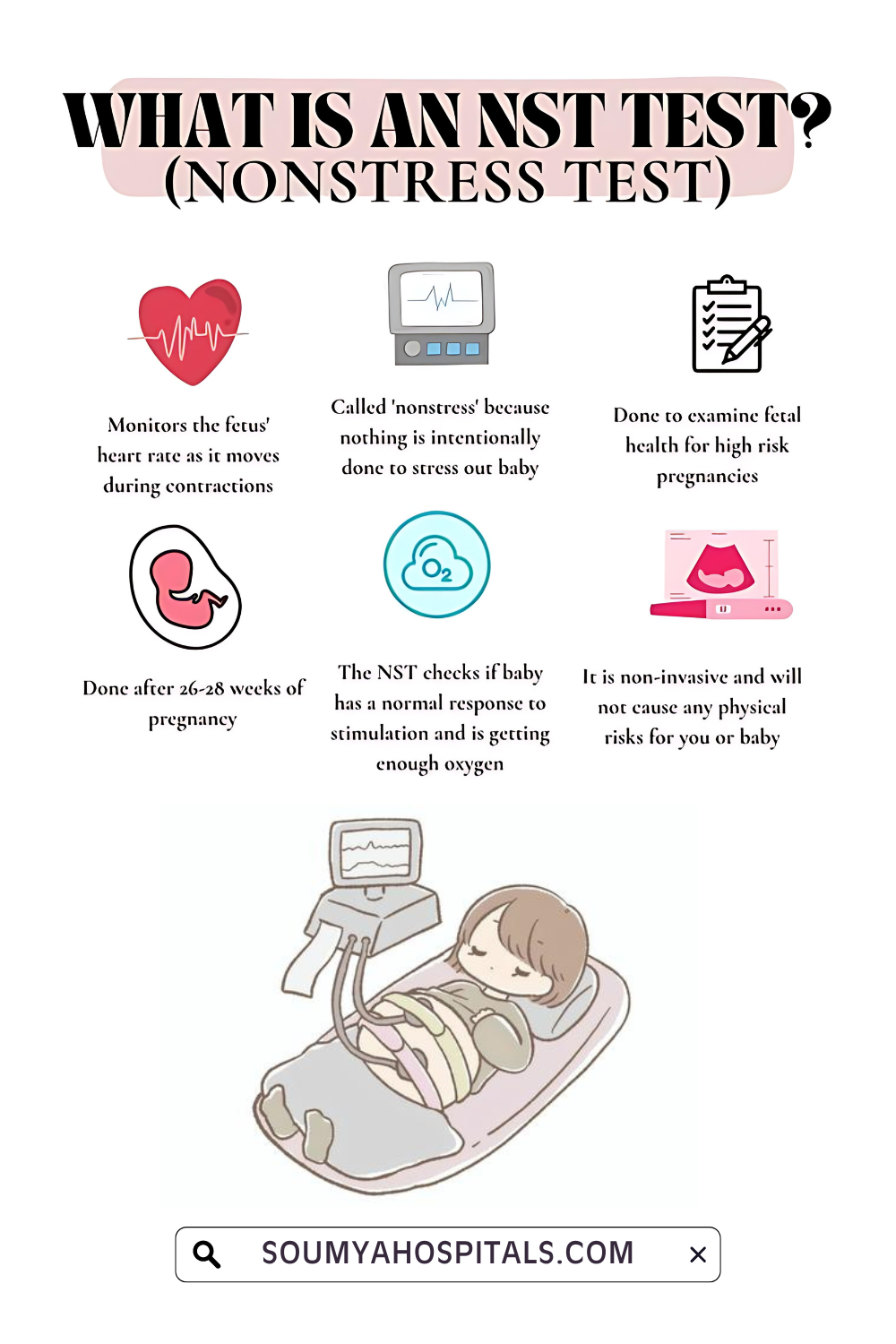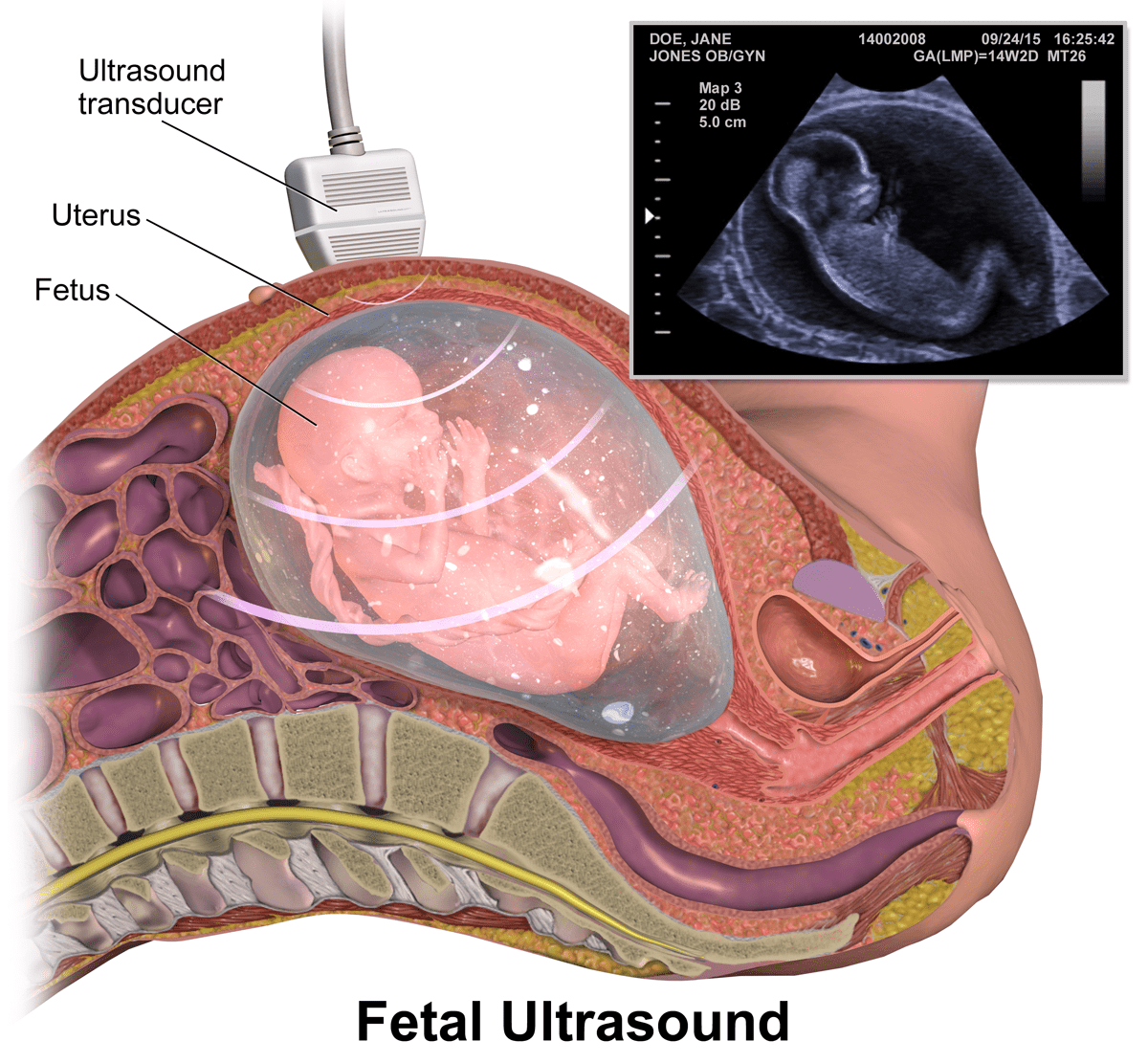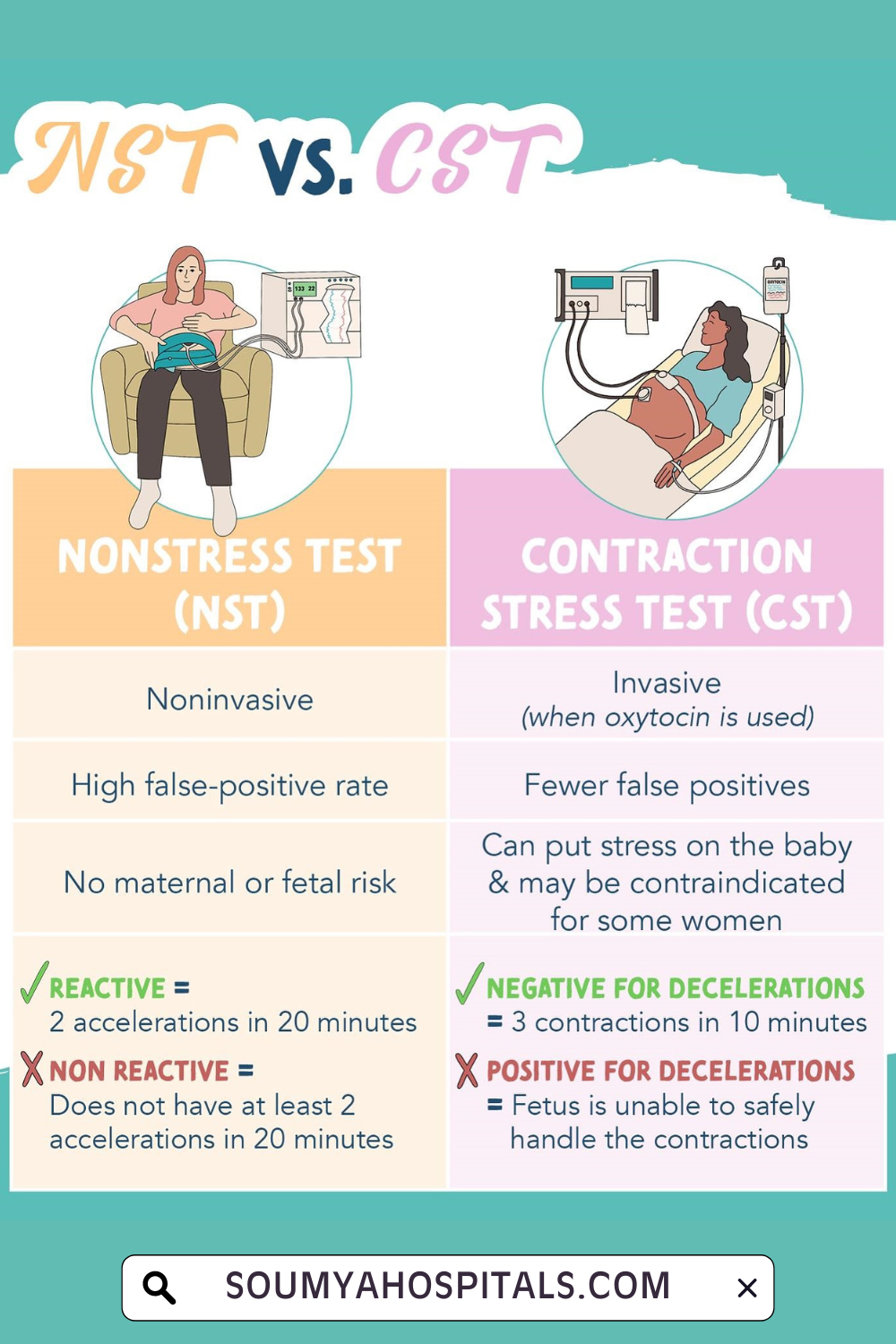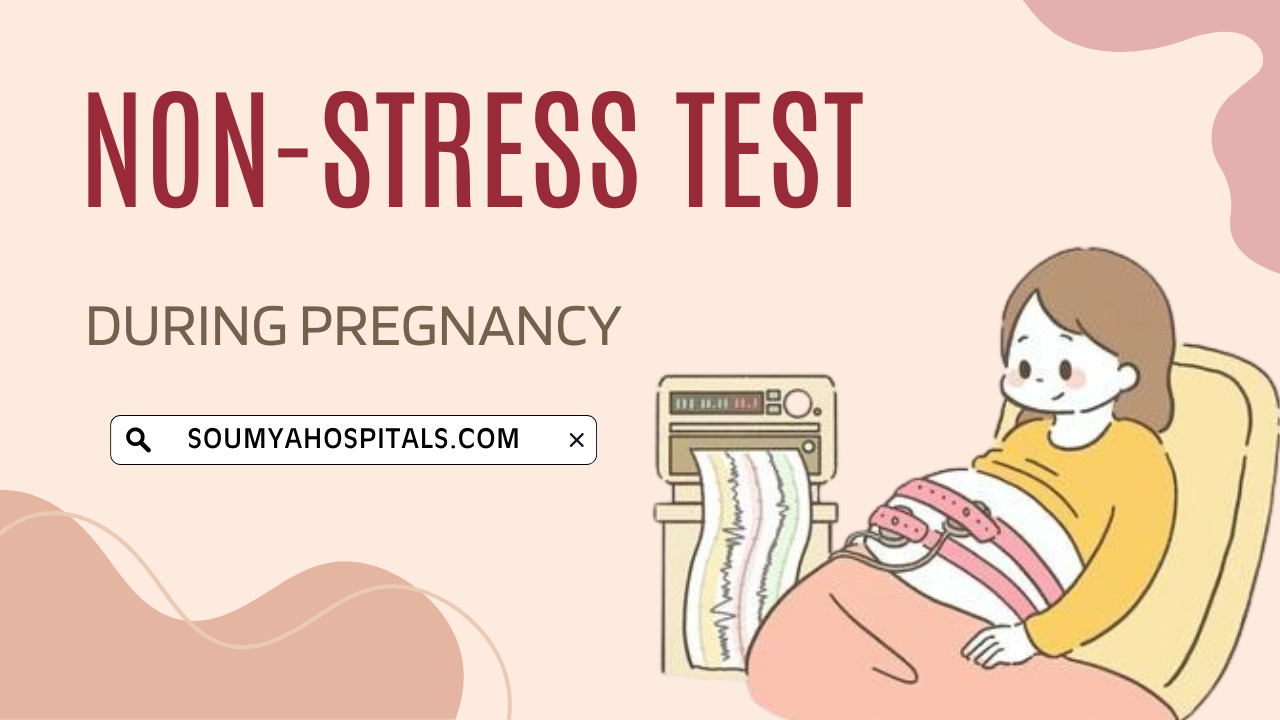Important Tests during pregnancy help check the baby's growth and health and the mother's well-being.
Non-Stress Test: In the journey of the pregnant woman, there will be a lot of tests that will be taken during 9 months, and, this Non-stress test which will be done to test the fetal well-being is also one.
The non-stress test is popularly known as the NST test. When you take the readings of this test it can be reactive and nonreactive.
Go deep into the article below, and check the information about NST test in pregnancy completely as you will know the information of purpose, procedure, risks, results, and more.
- What is NST in Pregnancy?
- Why & Who Needs This Non-Stress Test in Pregnancy?
- How is a Fetal Non-Stress Test Done?
- What Do Non-Stress Test Results Mean?
- Difference Between Non-Stress Test & Stress Test | Non-Stress Test vs Stress Test
- When will the Non-Stress Test be conducted?
- How to Prepare for an NST?
- What are the risks of a non-stress test?
- Can a non-stress test determine the sex of a fetus?
What is NST in Pregnancy?
A Non-Stress Test is a method of assessing the baby's well-being. Ánd this test is a type of pregnancy screening that helps to evaluate the fetal heart rate and response to movement.
As a pregnant woman, you do not need to take the stress as it is safe and painless, the name itself tells you that it is not stressful.
All the NST test procedures will be done under the guidance of the maternal health care expert, who will check whether the baby is healthy and taking oxygen correctly or not.
This test will be done when your pregnancy due date is past.

Learn About: Preconception Checkup Before Planning Pregnancy
Why & Who Needs This Non-Stress Test in Pregnancy?
When you talk about the question of who and why you need to have this Non-Stress Test, generally this test will be recommended by doctors to avoid complications in pregnancy and to check healthy fetal health.
Let us see some of the reasons that you need to take this nonreactive stress test.
- When you are crossing 40 weeks and still you have not delivered, then your doctor may recommend you this test as it can cause complications in pregnancy.
- And even if the blood type of the mother is RH positive, the body of the mother will make antibodies which is dangerous for the fetus as it is a serious complication, your doctor may suggest this.
- Even if there is a decrease in fetal movements compared to normal and if the baby is not growing properly.
- When you have high-risk complications like twins, triplets, or more.
- If you are 35 years old and older.
- Having a hypertension disorder like preeclampsia, then you need this test.
- Even if the mother has gone through amniocentesis or chorionic villus sampling, then your healthcare provider may suggest you do a non-stress test to check the baby is well inside the womb.
How is a Fetal Non-Stress Test Done?
The non-stress test Procedure is painless and safe. You can even know that by reading the procedure that was given below.
Read out the Procedure of Non-Stress Test.
- First, when you go for this test, they rely on a table, where everyone gets examined.
- Then, your healthcare provider will attach two elastic belts to your belly.
- After that, they will apply a gel to your abdomen or belly.
- The belt fixed to your belly will also have a transducer attached to it.
- That will monitor the fetal heart rate easily as the provider will place the transducer exactly near the baby's heartbeat in the belly.
- The recorded heartbeat of the baby will come to you as a printout on paper too.
- The provider will ask you to push the monitor when you feel the movement of the baby.
- And like this, the information will be recorded for at least 30 minutes.
- When they get the complete information that they are looking for, then they will remove the belt.
Sometimes, when you want to test the baby that might be a baby's sleep hours, at that time, your provider will keep the acoustic sound to wake them up from the sleep cycle.
And also the provider may suggest you drink sugary drinks to wake up the baby.

What Do Non-Stress Test Results Mean?
When you take this Non-Stress test, the test may take 30-40 minutes but you will get the results immediately after completion of the test within no time.
Once the test result arrives your obstetrician will discuss that result with you. And in that results, you will get the reactive & Non-reactive non-stress test.
Reactive Non-Stress Test: While taking the test if the fetal heart rate goes up to the expected level at least twice then that will lead to Non-Stress Test.
They will provide a time limit of 20 minutes twice. If the pregnant woman gets the Reactive NST in pregnancy then the result says that the blood flow to the fetus is inadequate.
Non-Reactive Non-Stress Test: As the name itself says the NOn Reactive NST means that the fetus will not provide you with movement or less movement.
This will be done due to poor oxygenation, or it may be sleep patterns or others.
With the test results that you get in this Non-stress test, based on your provider will suggest another test like a Biophysical Profile where the test needs to use ultrasound or a Contraction stress test the measure the fetus's reaction contractions.
Still after doing all these if the fetus is at risk then the provider will ask for immediate delivery based on the weeks of the pregnancy.
Difference Between Non-Stress Test & Stress Test | Non-Stress Test vs Stress Test
When you look at the difference between the Stress test and the Non-stress test, both the names look alike but there is a lot of difference between them.
A stress Test will be done to check the heart rate, blood pressure, and oxygen levels for exercises like pedaling on the motorbike or walking on a treadmill.
But when it comes to the Non-Stress Test, it is not similar to the stress test, in this test we have seen that fetal heart rate monitoring & fetal movements will be checked for a pregnant woman.

FAQs on NST Test in Pregnancy
1. When will be Non Stress Test be conducted?
Non-Stress Test will be conducted after 28 weeks of pregnancy as that is the time when fetal heart rate monitoring will start.
No need for any preparation to take this Non-stress test, you just need to keep your bladder empty.
3. What are the risks of a non-stress test?
As it is a painless and safe test, there will not be any risk in this non-stress test for the baby and the mother.
4. Can a non-stress test determine the sex of a fetus?
No, this non-stress test will not determine the sex of the fetus as the test is not designed for it.
Conclusion
Evaluate your fetal heart rate easily with this Non-stress test under the guidance of your healthcare provider which is very safe and painless.
Whenever you have tests like this, do not go for it without knowing about it as it will also have risks attached to it.
Read the information about the tests or ask questions that you have in your mind about the test, and then decide what to do. You can even take the help of our articles on the Tests during Pregnancy page at Sowmya Hospitals.com.
